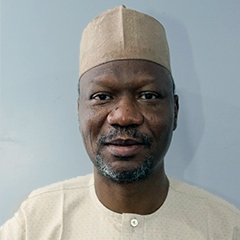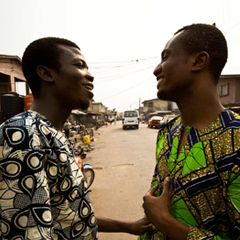On the heels of its historic 2015 election, Nigeria, with its rapidly growing, young population and its rising economy, is in a time of great opportunity.
For nearly 30 years, the Foundation has invested in Nigeria. Our work in the country has included deep support for activities in the population and reproductive health, human rights, and education fields. Our Abuja office, established in 2000, has been the hub for this work and has grown along with our expanding portfolio of work in Nigeria.

In the run-up to the 2015 elections, we stepped back and carefully considered how the country had changed since we first began operating in Nigeria in 1989. We asked ourselves what we would support today if we were just beginning our engagement in the country. We reflected on new opportunities and ongoing challenges. We tried to be ambitious and audacious.
After meetings with colleagues, experts and academics, government officials, and representatives from civil society organizations, we identified four major themes: corruption, insecurity, poor public services, and young people. At the same time, presidential candidate Muhammadu Buhari was campaigning on the themes of anti-corruption, security, and economic growth. His popular slogan was, “If Nigeria doesn’t kill corruption, corruption will kill Nigeria.” This was a bold statement, as the government at the time would not name corruption as a problem, but rather minimized it as “stealing” or “leakage” of funds. Buhari’s historic election and his promise to tackle corruption helped to make the Foundation’s future work in the country clear. The window of opportunity for us to support Nigeria-led anti-corruption initiatives had opened, and the On Nigeria strategy was formed.
The impacts of corruption in Nigeria are profound and far-reaching. Nigeria’s Economic and Financial Crimes Commission Report of 2012 stated that “the failure to deliver social services, the endemic problem of power supply and the collapse of infrastructure are all linked with corruption.” According to the Natural Resource Governance Institute, Nigeria lost $32 billion during the 2009-2015 administration of Goodluck Jonathan. There is now little doubt about why Boko Haram was able to control large territories for long periods of time-it was better armed than the Nigerian military. Recent courtroom revelations and the fact that assets of those responsible for fighting the Boko Haram insurgency have been frozen show us how this came to pass. Hence, supporting anti-corruption efforts is essential to both defeating insurgency and providing the effective public services to which residents are entitled. Our goal is to help Nigeria put its substantial resources to work more equitably. We believe that progress on other issues is likely to be compromised without a real reduction in corruption.
...our goal is to bolster the efforts taking hold in the country... shining a spotlight on corruption, demonstrating that reducing corruption is possible, and increasing public demand for a more corruption-free society.
Contributing to Nigerian-led efforts to reduce pervasive corruption is not an end in itself, but an investment in a better quality of life for more people. We focus on retail or petty corruption in the delivery of two public services, education and electricity, which were identified as top areas of concern by Nigerians in a recent poll. A complementary focus is on the essential justice system, including implementation of the Administration of Criminal Justice Act. This important legislation introduced new provisions that will enhance the efficiency of the justice system, including its ability to hold corrupt individuals accountable.
We have started making grants to governmental and civil society organizations. Immediately after the general elections and before the inauguration of the new administration, MacArthur and other private foundations met with newly elected officials who were former grantees about how to advance the anti-corruption and criminal justice reform agenda of President Buhari’s successful campaign. This led to a grant that supports the Presidential Advisory Committee against Corruption. This committee, although advisory in nature, plays a major role in the extensive anti-corruption efforts of the new Administration, including the critical task of recovering stolen assets that can be used to support the weakened economy.
Civil society groups play a significant role in keeping governments on their toes. We are supporting several groups whose mission is to demand greater accountability by government officials. Grants for investigative and data-driven journalism will provide reports and information that civil society organizations and anti-corruption agencies can use to support their advocacy work.
We are mindful of our limitations. However extensive, the work we support will not singlehandedly eradicate corruption. Rather, our goal is to bolster the efforts taking hold in the country, providing support to those willing to take a stand against corruption, shining a spotlight on corruption, demonstrating that reducing corruption is possible, and increasing public demand for a more corruption-free society.
Sustainability of these efforts is a matter of great concern. Is this a Buhari anti-corruption campaign only, or can it extend more broadly? Will political will be sustained in context of a weakened economy and citizen demand for quick action? What is happening in the states and how do their varied conditions affect this work? How quickly can societal norms and values change? Are human rights respected in the campaign against corruption? How can the anti-corruption campaign avoid becoming part of a political vendetta? These and other issues are of concern to the On Nigeria team and the answers to them will influence what we do in the future.





